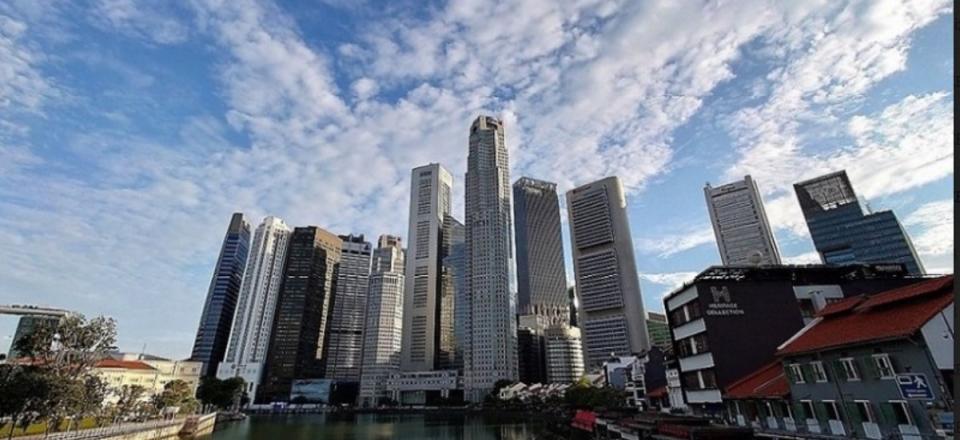UOB Kay Hian remains ‘overweight’ on logistics REITs in Singapore, calls ‘buy’ on FLCT and MLT

Singapore is “an ideal hub to support e-commerce fulfilment”, UOB KH says.
UOB Kay Hian analyst Jonathan Koh is maintaining his optimistic outlook for logistics REITs in Singapore with an “overweight” call for the sub-sector.
Koh has also kept his “buy” call for both Frasers Logistics and Commercial Trust (FLCT) and Mapletree Logistics Trust (MLT).
In his report, the analyst has handed FLCT a target price of $1.60, saying that e-commerce penetration in Australia inched slightly higher by 0.3 percentage points (ppt) h-o-h to 14.6% in 1HFY2022 ended June.
FLCT’s average vacancy rate for its Australian portfolio declined 0.5 ppt y-o-y to reach a record and global low of 0.8% in 1HFY2022.
Over in Europe, the German Bundeskbank warned that an immediate shutdown on Russian gas imports would reduce GDP growth by five ppt, dragging Germany into a deep recession.
Fortunately for FLCT, its Germany portfolio has a long weighted average lease expiry (WALE) of 6.3 years and annual rental escalation is consumer price index (CPI)-linked.
As for MLT, Koh has given a target price of $2.08, with the REIT embarking on the redevelopment of 51 Benoi Road in Singapore and its Subang Jaya site in Selangor, Malaysia. The redevelopments are expected to be completed by the end of 2025 and 2027 respectively.
Furthermore, MLT’s China portfolio has recovered from localised lockdowns. Koh says leasing activities have resumed and demand for logistics space is expected to pick up rapidly in 3QFY2022, adding that key tenants, such as JD.com and Cainiao, are keen to renew their leases.
From a macro perspective, Koh says that logistics REITs in Singapore are likely to benefit from e-commerce growth in Asean. This is due to Singapore’s strategic location in the region, in addition to its well-developed maritime and aviation infrastructure, describing the Republic as “an ideal hub to support e-commerce fulfilment”.
Koh lists all the factors that he thinks makes this so: Singapore is the world’s largest container transhipment hub, while Changi Airport is the largest air cargo hub in Southeast Asia and Southwest Pacific. The country was also recognised as the top logistics hub in Asia for 10 consecutive years by the World Bank and, the top 25 global logistics players have established a presence in Singapore.
Singapore plans to be an e-commerce hub by strengthening digital infrastructure, cybersecurity and specialised capabilities, such as cold-chain management and pharmaceutical logistics.
On the demand front, Koh sees that Asean is a “lucrative market” for e-commerce platforms, citing World Economic Forum statistics that say the number of high income and upper-middle income households is projected to expand at a compound annual growth rate (CAGR) of 5.4% to 86 million in 2030.
Furthermore, Asean’s combined GDP of US$3.2 trillion ($4.49 trillion) is already the fifth largest in the world and is on track to become the fourth largest by 2030.
“According to Temasek and Google, the e-commerce market in Southeast Asia (Singapore, Malaysia, Thailand, Indonesia, Philippines and Vietnam) is projected to expand by a CAGR of 26% and exceed US$150 billion by 2025,” the analyst writes.
With regard to demographic, Koh highlights that the 10 countries of Asean have a total population of 700 million, with 61% under the age of 35.
For e-commerce companies in Asean, speedy delivery is a core advantage. Koh says Millennials and dual-income households expect convenience, choice, reliability and immediacy.
As competition between online retailers is intense, e-commerce platforms are under constant pressure to reduce delivery time to meet expectations of demanding consumers, such as having same-day shipping.
To achieve this feat, logistics companies must secure prime logistics space close to end-consumers in Southeast Asia.
Furthermore the transition to “just-in-case” supply chains is also expected to increase inventories by 5%-10%, leading to heightened demand for these spaces, and multi-national companies have adopted the “China + 1” strategy to weather the US-China trade conflict and reduce their over-reliance on China.
“Many have relocated production facilities from China to Southeast Asia, thus tapping on cost efficient manufacturing while maintaining proximity to the huge consumer market in Asia. Companies are diversifying their supplier bases to minimise concentration risks.”
He is of the view that prime logistics properties will deliver strong rental growth, with rents for prime logistics space seeing strong rental growth of 7% y-o-y and 2.7% q-o-q to $1.53 per sqft per month in 2Q2022.
There is also an acute shortage of quality logistics space, with Koh highlighting that capital values for prime logistics space have increased 15.1% y-o-y and 6.5% q-o-q to $213 psf in 2Q2022.
As of 11.32 am, shares of MLT and FLCT were trading at $1.70 and $1.36, with FY2023 dividend yields of 5.2% and 5.6% respectively.
See Also:
Click here to stay updated with the Latest Business & Investment News in Singapore
UOB Kay Hian downgrades SGX to 'hold' with lower TP of $10.04
Get in-depth insights from our expert contributors, and dive into financial and economic trends

 Yahoo Finance
Yahoo Finance 